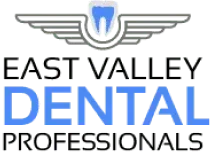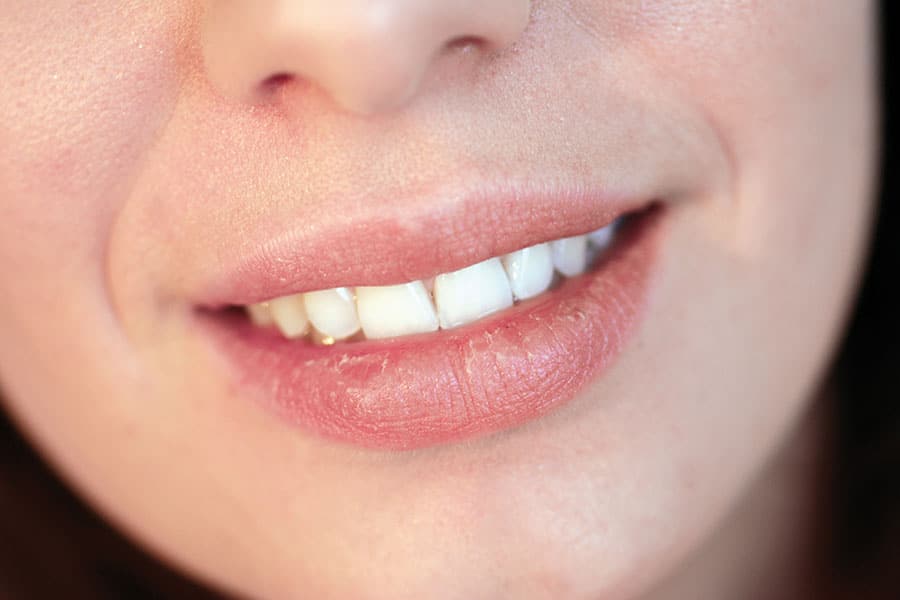It’s natural to experience dry mouth occasionally, especially if you are feeling anxious or stressed out. However, persistent dryness can lead to an array of serious health issues.
Dry mouth, also called xerostomia, is due to decreased saliva production and a lack of saliva flow in the mouth. This condition can be caused by aging, specific medications, and sometimes disease. When the moisture in your mouth is off balance for an extended period of time, it can become a breeding ground for harmful bacteria and even impact your ability to chew, taste, and swallow.
Fortunately, dry mouth is treatable through at-home methods or assistance from a dentist. While you may want to try a few tricks at home before seeing a doctor or dentist, don’t ignore constant dry mouth that does not get better with treatment.
Why Is Dry Mouth Problematic?
While dry mouth may seem to be a minor nuisance, it can actually be a symptom of a more significant issue. When persistent, dry mouth can lead to severe tooth decay, ulcers, and mouth sores. Saliva is your mouth’s primary line of defense, and if it is weakened, you may be exposed to fungal and viral threats too.
Symptoms
The symptoms of dry mouth may vary from person to person. While the primary symptom may seem obvious, some dry mouth sufferers may experience various symptoms that are less obvious.
The following list includes many of the potential dry mouth symptoms you may experience:
- Bad breath, also known as halitosis
- Dryness in the mouth
- Constant sore throat or dryness in the throat
- Hoarseness
- Stickiness in the mouth
- Burning in the mouth or throat
- Dryness in the nasal passages
- Insatiable and constant thirst
- Trouble chewing or swallowing
- Dry or cracked lips
- Sores and ulcers in the mouth
- Difficulty speaking
- Inability to taste or a change in the ability to taste
Causes
Medications are one of the most common causes of dry mouth. If you use antihistamines or decongestants to treat allergies or colds, take medicine to manage high blood pressure, or take muscle relaxers or antidepressants, you may experience dry mouth.
Another dry mouth cause is dehydration. Easily treatable through the intake of liquids, primarily water, dehydration is a common culprit of dry mouth.
There are specific diseases and medical conditions that can cause dry mouth, including diabetes, Sjögren’s syndrome, Alzheimer’s disease, anxiety, cystic fibrosis, depression, Parkinson’s disease, and oral thrush. If you have already been diagnosed with one of these conditions, it may be the reason why you are experiencing dry mouth.
Radiation therapy can lead to dry mouth, especially if the treatment is targeting your head and neck. While this may be a necessary cancer treatment, it may damage your salivary glands.
Dry mouth may also occur due to tobacco and marijuana use. To combat this, you may want to quit smoking or chewing tobacco altogether.
If you have a neck or head injury, you may experience dry mouth due to nerve damage. Surgery in this region can cause nerve damage as well, resulting in an extremely parched mouth.
Lastly, if you snore frequently or primarily breathe with your mouth open, it may cause your dry mouth. Talk to your doctor if you struggle with either of these issues, as they may have a solution for you.
Treatment
Luckily, depending on the cause of your dry mouth, you may be able to fix the issue from the comfort of your own home. To relieve dry mouth, you may want to begin with treatments at home before seeing a doctor.
Treatment varies from person to person, and what works for one patient may not work for another, so don’t give up if the first treatment you try doesn’t work. Every dry mouth sufferer should be patient while trying a new treatment, as giving it time to work is crucial.
Consider these at-home dry mouth treatment tips to relieve your symptoms.
- Suck on ice chips
- Drink water throughout the day
- Quit smoking and chewing tobacco
- Chew sugar-free gum
- Use a humidifier while you sleep
- Avoid drinks containing sugar, caffeine, or alcohol
- Use an OTC oral rinse with xylitol
- Maintain good oral care to remove food particles from your mouth
- Avoid acidic foods and drinks
- Use a fluoride rinse before bed
- Replace your mouthwash if it contains alcohol
If these home care tips do not help relieve your symptoms, see a doctor or dentist for further treatment options. If a more serious issue is going on, a diagnosis may be rendered. They may prescribe medications that will stimulate saliva depending on the cause of your dry mouth.
It is possible that your dry mouth is being caused by a medicine you are currently taking. In that case, your doctor may change your medication if possible.
If you are struggling with dry mouth, schedule an appointment with our dentist for an evaluation, as well as further treatment options.

